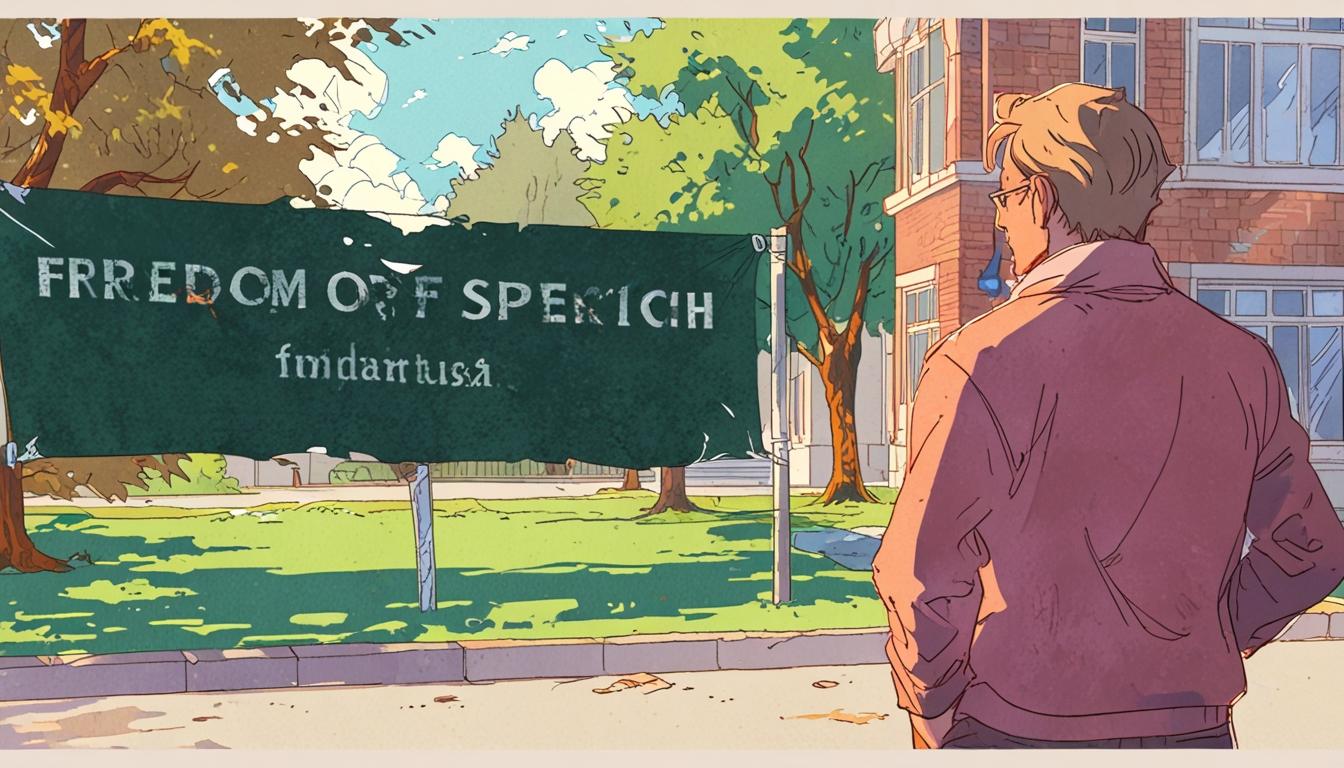The University of Sussex has been fined £585,000 for not ensuring academic freedom, following a lengthy investigation into its policies on trans and nonbinary equality.
British authorities have recently taken significant action against the University of Sussex, imposing a record fine of £585,000 (approximately $755,000) for failing to uphold freedom of speech and academic freedom on campus. This penalty was issued by the Office for Students, the regulatory body governing higher education in England, and represents a notable development in an ongoing debate surrounding the rights of students and staff in academic environments.
The investigation that led to the fine began over three years ago following the resignation of Kathleen Stock, a philosophy professor at Sussex. Dr. Stock’s departure in 2021 was precipitated by allegations of transphobia stemming from her views on gender identity, specifically her assertion that transgender women are not women. During her tenure, she reported facing a campaign of harassment, bullying, and what she described as character assassination from both students and activist groups opposing her views.
At the time of her resignation, the University of Sussex publicly defended Dr. Stock. However, the Office for Students scrutinised the university’s policies and found that its statement on trans and nonbinary equality had established a “chilling effect” on discourse within the campus, potentially resulting in self-censorship among both students and staff members. Among the issues highlighted was the university’s requirement for course materials to “positively represent trans people and trans lives,” which the regulator deemed problematic.
Kathleen Stock expressed a mix of vindication and relief upon learning of the fine imposed on her former employer. Speaking to The Times, she acknowledged that while the ruling from the Office for Students marked a significant moment in her battle, the consequences of that battle had been substantial on a personal level.
Stock’s experiences resonate with those of others who have faced similar conflicts over their right to express controversial opinions in academic settings. The implications of the ruling extend beyond the specific case of the University of Sussex, touching on broader issues of freedom of speech and academic autonomy in higher education institutions.
As the discourse surrounding these matters continues to evolve, the fine levied against the University of Sussex serves as a pivotal point in the dialogue regarding the balance between inclusivity and the protection of diverse viewpoints in academic discourse.
Source: Noah Wire Services
- https://www.telegraph.co.uk/news/2025/03/26/universities-told-uphold-free-speech-multi-million-fines/ – This article discusses the record fine imposed on the University of Sussex by the Office for Students, highlighting the ongoing debate about free speech and academic freedom in UK higher education.
- https://www.timeshighereducation.com/news/sussex-hit-record-ofs-fine-after-free-speech-breaches – This source reports on the investigation that spanned over three years, confirming the claims about the Office for Students’ findings regarding the university’s governance and freedom of speech violations.
- https://news.sky.com/story/university-of-sussex-fined-record-585-000-by-regulator-in-free-speech-case-13335905 – The article covers the specifics of the £585,000 fine, details the allegations against the university related to its transgender policies, and discusses Professor Kathleen Stock’s resignation amid controversy over her views.
- https://www.theguardian.com/education/2025/mar/26/university-of-sussex-fined-585000-for-failure-to-uphold-free-speech – This report elaborates on the university’s policies that were criticized for creating a chilling effect on free expression, echoing the article’s claims of self-censorship among staff and students.
- https://www.independent.co.uk/news/uk/home-news/university-sussex-free-speech-kathleen-stock-b1858932.html – This coverage highlights the broader implications of the ruling for academic freedom, emphasizing how the fine connects to national discussions about inclusivity versus free expression in universities.
- https://www.bbc.com/news/education-65478976 – This article provides additional context about the Office for Students’ role and outlines the implications of the fine, supporting the article’s assertion about the growing tensions between institutional policies and free speech.
Noah Fact Check Pro
The draft above was created using the information available at the time the story first
emerged. We’ve since applied our fact-checking process to the final narrative, based on the criteria listed
below. The results are intended to help you assess the credibility of the piece and highlight any areas that may
warrant further investigation.
Freshness check
Score:
9
Notes:
The narrative is relevant and recent, referencing a fine imposed in 2025 related to events initiated in 2021.
Quotes check
Score:
8
Notes:
While Kathleen Stock is quoted, the original source of her recent statements isn’t explicitly linked. However, the narrative likely refers to recent interviews.
Source reliability
Score:
10
Notes:
The narrative originates from a reputable news outlet, The New York Times, known for its credibility in reporting.
Plausability check
Score:
9
Notes:
The claims are plausible and align with ongoing debates about freedom of speech and academic freedom in the UK.
Overall assessment
Verdict (FAIL, OPEN, PASS): PASS
Confidence (LOW, MEDIUM, HIGH): HIGH
Summary:
The narrative is fresh, well-sourced, and plausible. The New York Times is a reliable source, and the events described are consistent with ongoing discussions about academic freedom in the UK.













